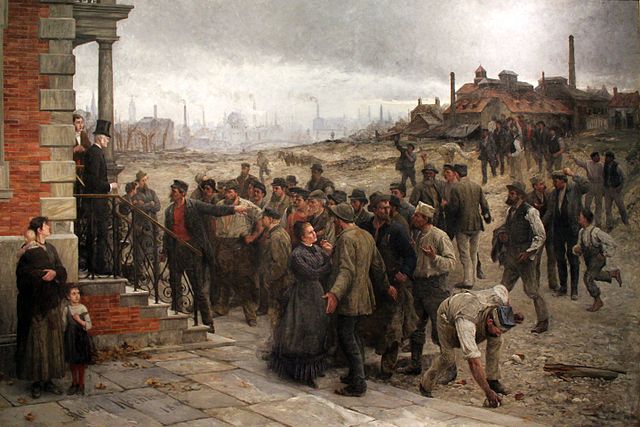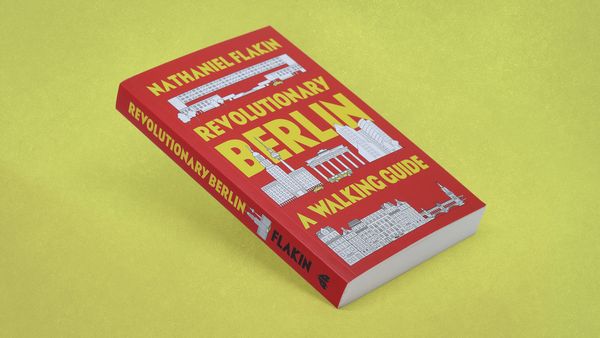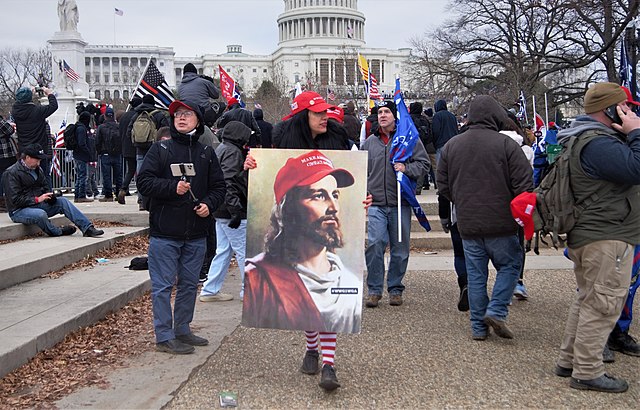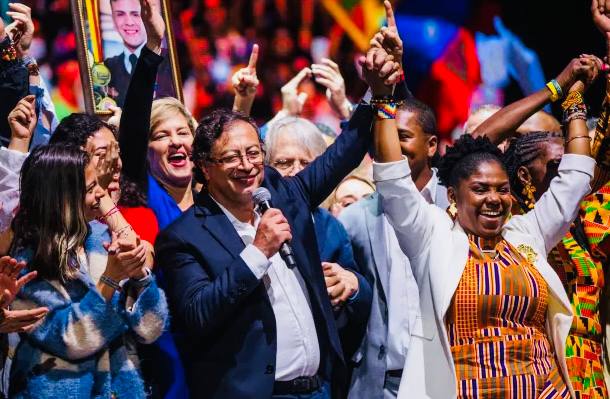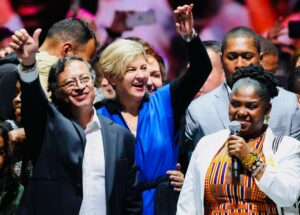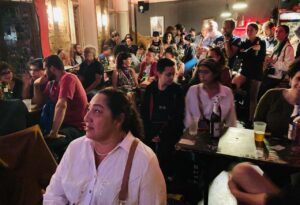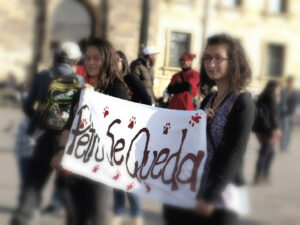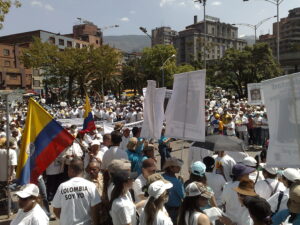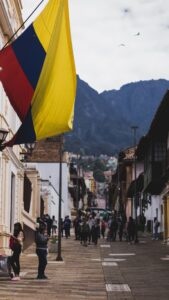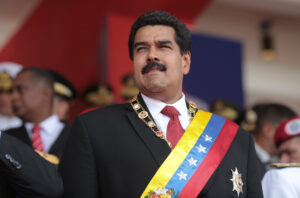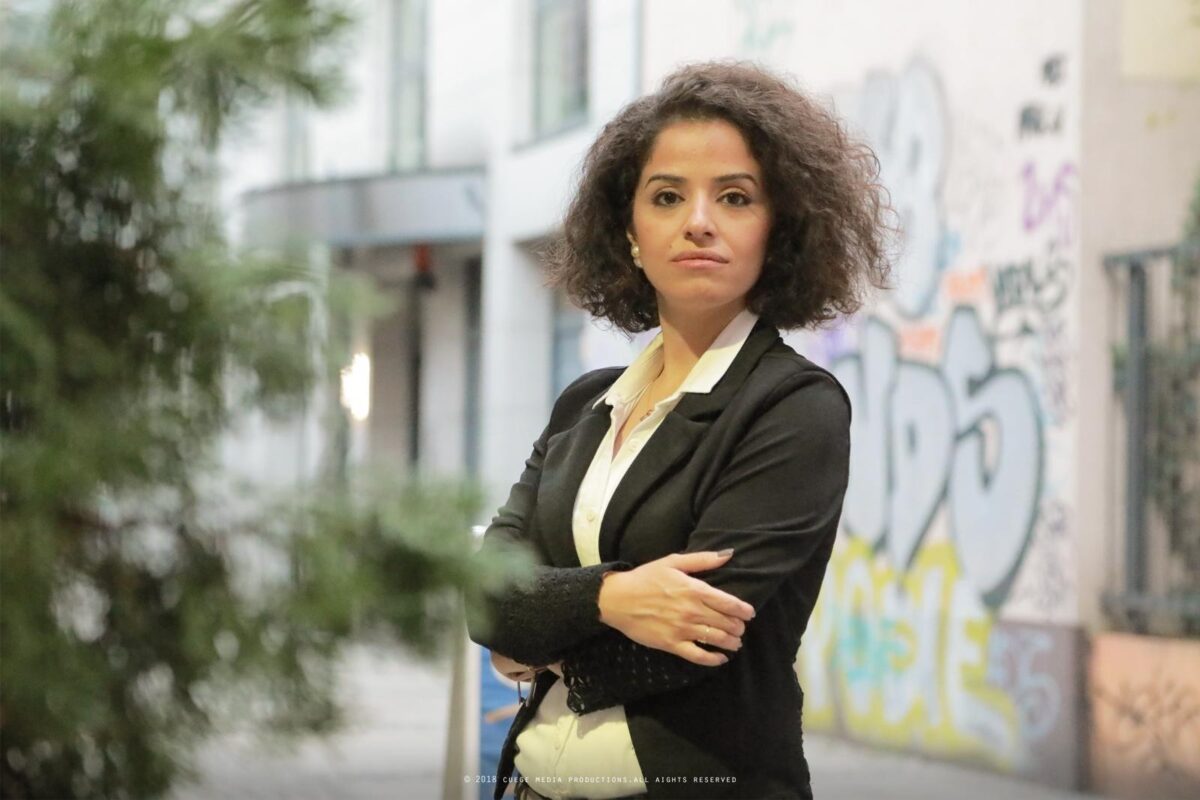Marxists are used to seeing society’s institutions misrepresent Marx and Engels. So it was with some scepticism that I visited this exhibition. This is not unwarranted.
We read in the free brochure, Raphael Gross, the President of the Museum, intoning: “Marxism became the ideology in states that committed torture and murder in the name of communism and socialism”. There is no nod that the ideology of Bourgeois Democracy has done that for longer and to far more people world wide, than the harms by a mis-respresented “Marxism” as in Cambodia under the Khmer Rouge. That Democracy continues today to wreak its toll world-wide.
Moreover the Museum explicitly couples this Marx exhibit with one entitled “Richard Wagner Und Das Deutsche Gefühl”, — translated with a wee bit of license as “Richard Wagner and the Nationalization of Feeling”. Perhaps one can see where this coupling is headed…?
Here is the web description of the Marx exhibit: “The focus is on topics such as criticism of religion and society, Jewish emancipation and anti-Semitism, revolutions, new technologies, nature and ecology, the economy as well as struggles and movements in Europe.” Here is the corresponding blurb for the Wagner Exhibit:
“Richard Wagner experienced and shaped the 19th century in very different positions: as a composer and court music director, as a revolutionary and exile, as a bankrupt and as a protégé of wealthy patrons and a king… Wagner’s pronounced anti-Semitism and his nationalism were closely linked.”
True, both Marx and Wagner participated in the 1848 attempted bourgeois democratic revolution in Germany. But I think the real link the curators aim to make is that of anti-Semitism. That charge certainly sticks firmly on Wagner. Even so, it should be recalled that many great musicians praise Wagner’s music. For example in a 1998 conversation with Edward Said, Daniel Barenboim says: “I think that Wagner’s anti-Semitism is one thing, and the things that we have been forced to associate with his music are another. “
But does the charge stick onto Marx? I will return to this.
Nonetheless, the Marx exhibition itself ultimately rises above the dubious linkage its’ curators target. One caution – it treats ‘Marx’ and not ‘Marx and Engels.’ Engels is regrettably not treated as a fully equal figure in this exhibition. This follows the now well worn historiography of Georgy Lukacs who denigrated Engels. True the exhibit notes the seminal work ‘The Condition of the Working Class in England‘ (Marxist IA). But it does not elucidate that as Marx had praised it, it was a “brilliant essay on the critique of economic categories”. Lenin, Ronald Meek and others have assessed it as containing several “germs” of Marxist theory (Bland).
Cavils aside, overall the exhibition is a great experience in my view, both for those wanting to learn about Marx and for those who already have some knowledge of him. For the first, a well organised guide to the life and work is presented. It takes a chronological course and especially with the audioguide (German or English – well advised but with an extra Euro 3) is comprehensive. Apart from biographical information, it progresses from Marx’s early insights into the process of the workers alienation from society and its inhumane seizure of workers rights. From there Marx’s analysis of the Paris Commune then leads onto presentations of his theory of Capital. A particularly vivid illustration of the concept of surplus value involves a working machine. The viewer is asked to work on a lever, which pumps water – largely into a big vat (employers profits) and a tiny dribble into a small wee cup (wages). Other vivid illustrations includes an 1880 botanical pressed leaf page which illustrates the pollution effects on leaves of the industrial revolution. At periodic intervals the disconcerting thunder of a ‘Spinning Jenny’ echoes through the hall. Presumably to remind viewers of the all pervasive effects of the Industrial Revolution on workers’ bodies. The role of women, and the First International is not forgotten.
Those more familiar with Marx will also be intrigued. For instance by numerous pictorials and creative ways of illustrating the period. Apart from those already described are paintings. For example, “The Silesian Weavers” by Carl W.Hubner (1846) described by Engels as having “made a more effectual Socialist agitation than a hundred pamphlets might have done. It represents some Silesian weavers bringing linen cloth to the manufacturer” [Collected Works; Volume 4; Moscow; 1975; pp. 229-233]. Or Robert Kohehler’s monumental ‘Der Streik” (1836). The treasurers box of the Amalgamated Society of Engineers (1855) with multiple locks to be turned by different office-holders. A board game “Strikes”, one of which the Marx family owned, involved how to fight the employers in negotiations — is made into a large interactive table game.
So well and good. What about this alleged, very old canard of an anti-Semitic stance of Marx? The charge made in the exhibition is that Marx identified capitalists as the same as Jews. One fundamental problem is that this was not seen differently by leading intellectuals at the time. Most striking for instance, was Moses Hess (1812-1875) — acknowledged as a key father of Zionism (Hess). Ruchwarger (1979) quotes Hess: “society was a “huckster world”, a “social animal world”… (where-Ed) “the priests of ancient Judaism (are) the hyenas of the social animal-world… (with) their :”common quality as beasts of prey, as bloodsuckers, as Jews, as financial wolves.”
Leaving this parallel aside, Marx in fact argues for the emancipation of Jews from the oppressions of society. Following the French Revolution, Jews had been granted civil rights in France. But in then-Germany the Prussian landowning aristocracy rejected the emancipation of the Jews, and allied with the peasants and guild members against this. However the independent professions and merchants were more open to this (Ruchwarger). By 1843, the chamber of deputies of the Rhineland Province asked the king of Prussia to remove all restrictions that “prevent equality between the Jew and his Christian subjects in civil and political matters”.
By 1840 Marx had advocated civil right for Jews. However he argued against the ‘Young Hegelian’ Bruno Bauer, who contested civil-political equal rights to Jews. Bauer advocated instead a societal “emancipation from religion”. Bauer said since no one in Germany was free – demands that Jews obtain “civic political emancipation”, were “egoistic” – as it placed them somehow above non-Jews. Furthermore Bauer argued that emancipation could not be given by those who are themselves “not free”. Marx summarises Bauer’s position:
“The German Jews desire emancipation. What kind of emancipation do they desire? Civic, political emancipation. Bruno Bauer replies to them: “No one in Germany is politically emancipated. We ourselves are not free. How are we to free you? You Jews are “egoists” if you demand a special emancipation for yourselves as Jews. As Germans, you ought to work for the political emancipation of Germany, and as human beings, for the emancipation of mankind, and you should feel the particular kind of your oppression and your shame not as an exception to the rule, but on the contrary as a confirmation of the rule. “Karl Marx 1844: “On The Jewish Question”
Marx, understood that Bauer denied a real, daily oppression. Bauer wanted instead an “abolition of religion” – but this was postponing resolution to some eventual, uncertain future. Moreover Bauer in reality denied that secular questions were the basis for religion. As Ruchwarger argues, for Marx: “The real foe is the distorted social order of which, religion is only the “spiritual aroma” (Ruchwarger). Marx depicted Bauer’s prescription as follows:
“How, then, does Bauer solve the Jewish question? “We must emancipate ourselves before we can emancipate others. The most rigid form of the opposition between the Jew and the Christian is the religious opposition. How is an opposition resolved? By making it impossible. How is religious opposition made impossible? By abolishing religion.” Karl Marx 1844: “On The Jewish Question”
Pointing to North America, Marx could show that separation of state and religion was possible, without the ‘abolition’ of personal religion, these were different:
“If we find that even in the country of complete political emancipation, religion not only exists, but displays a fresh and vigorous vitality, that is proof that the existence of religion is not in contradiction to the perfection of the state. Since, however, the existence of religion is the existence of defect, the source of this defect can only be sought in the nature of the state itself. We no longer regard religion as the cause, but only as the manifestation of secular narrowness. It is possible, therefore, for the state to have emancipated itself from religion even if the overwhelming majority is still religious.”
Karl Marx 1844: “On The Jewish Question”
Hence in sharp contrast to Bauer, Marx argued the distinction between political and civil freedoms. Marx argued that Jews should benefit from political freedoms, while yet seeing that this was not “human” emancipation – i.e. the struggle for human rights transcends the ‘Rights of Man’ as seen by bourgeois democrats. Those should not be eschewed – but they were only a step towards a full “human” emancipation:
“Therefore, we do not say to the Jews, as Bauer does: You cannot be emancipated politically without emancipating yourselves radically from Judaism. On the contrary, we tell them: Because you can be emancipated politically without renouncing Judaism completely and incontrovertibly, political emancipation itself is not human emancipation. If you Jews want to be emancipated politically, without emancipating yourselves humanly, the half-hearted approach and contradiction is not in you alone, it is inherent in the nature and category of political emancipation.”
Karl Marx 1844: “On The Jewish Question”
Indeed, Marx reminds Bauer that:
“The privilege of faith is expressly recognized either as a right of man or as the consequence of a right of man, that of liberty. Déclaration des droits de l’homme et du citoyen, 1791, Article 10: “No one is to be subjected to annoyance because of his opinions, even religious opinions.” “The freedom of every man to practice the religion of which he is an adherent.”
Karl Marx 1844: “On The Jewish Question”
This was relevant since unlike Bauer, Marx also believed that Jews should be endowed with the “Rights of Man.” It is quite true that Marx did not support a separate nation for Jews. And that he saw Jewry as having become enmeshed in money and capitalist relations:
“The god of the Jews has become secularized and has become the god of the world. The bill of exchange is the real god of the Jew. His god is only an illusory bill of exchange…. The chimerical nationality of the Jew is the nationality of the merchant, of the man of money in general.”
Karl Marx 1844: “On The Jewish Question”
But we have already seen that others (including Moses Hess) analysed the situation similarly, and just as bluntly. In any case, a close reading of Marx himself puts a lie to the old canard – namely that “Marx was a Jew-hating anti-Semite”.
In the end even the exhibit notes half-heartedly agree that Marx was on the side of democratic rights for Jews in Germany as elsewhere. However the exhibit persists in claiming that Marx’s view of the capitalist was made in the image of a stereotyped Jew.
While the rest of the Exhibition is extremely good and can be recommended, I’d suggest the visitor read their copies of Marx beforehand.
The Exhibition Karl Marx and Capitalism is showing in the Deutsche Historisches Museum, Berlin until 21st August.
